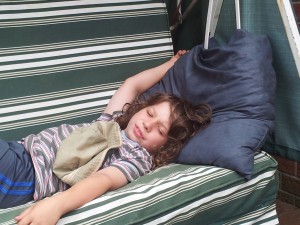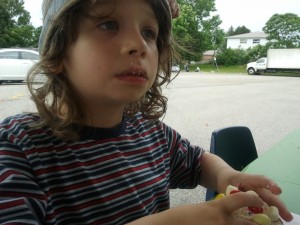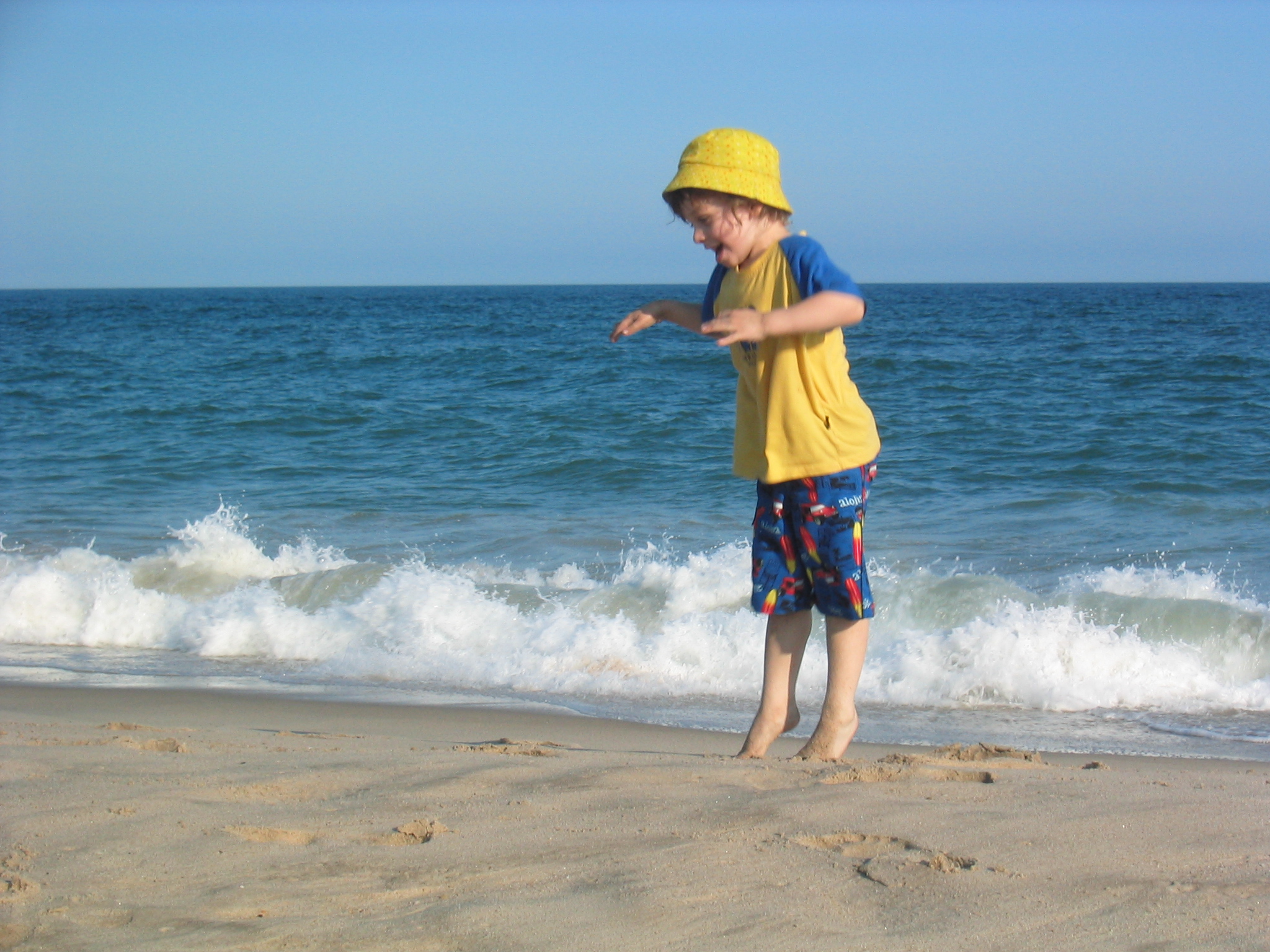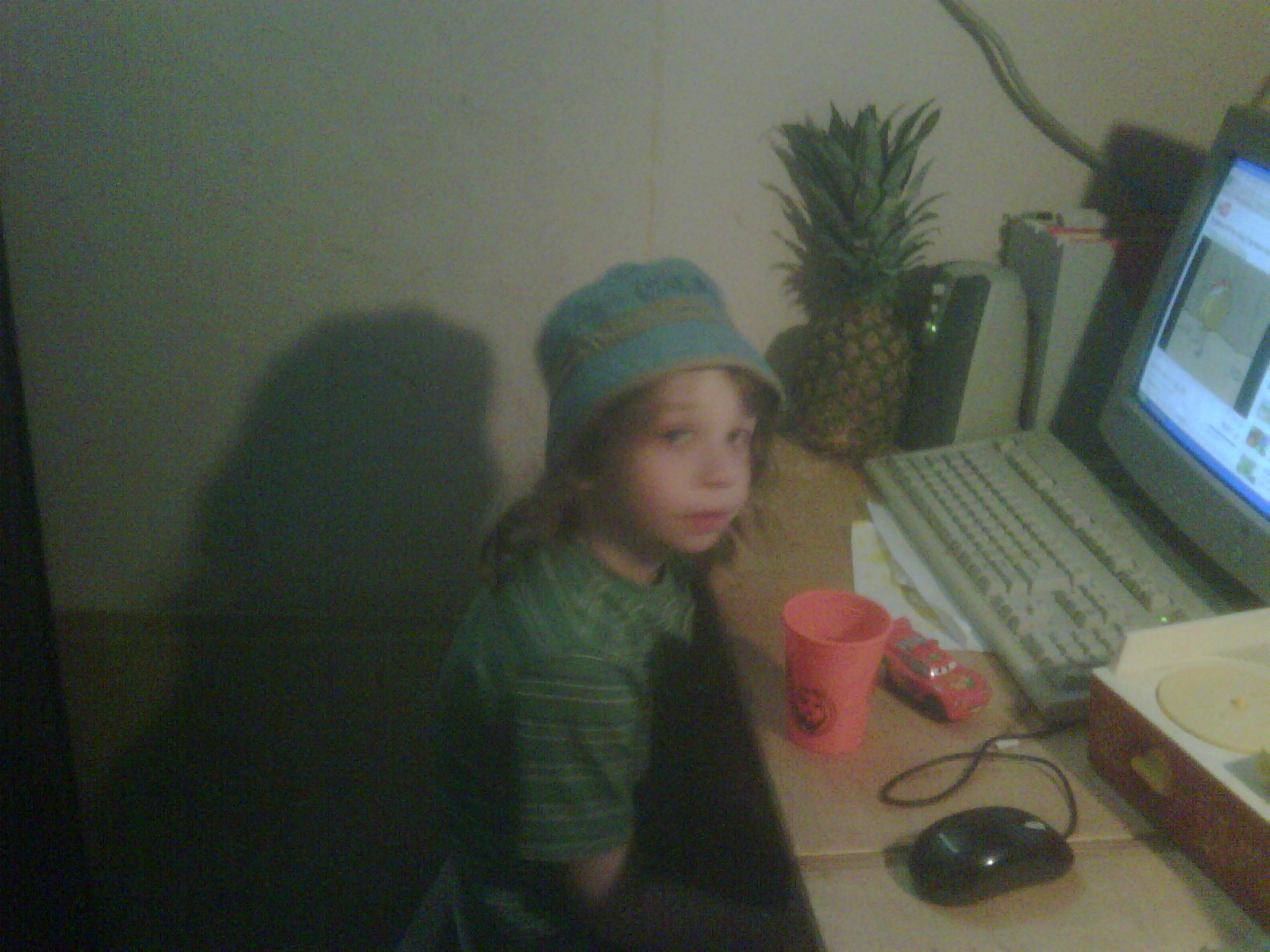We have reached the time of year when Christmas decorations come out and people start talking about how much Christmas shopping they have left to do. In my case, I still have to do 100% of my Christmas shopping left to do. That percentage is not likely to change until about a week before Christmas.
Christmas also means spending time with people, going to different events, making sure the Santa picture gets taken – all of that good stuff that gets a little bit overwhelming. If it’s overwhelming for me, I cannot imagine what it must be like for a child who has autism. And so I asked a group of autism parents what measures they take to ensure that they – and their kids – get through the holiday season intact. Here are their responses.
* Schedule everything out. Avoid scheduling too much for one day, and ensure that the schedule includes breaks.
* Do a visual schedule and/or social story for each day that something is happening.
* Tie a knot in the end of the rope and hang on!
* Do what works for your family and don’t compare your celebrations to anyone else’s. Remember that all those Pinterest and Facebook pictures are snapshots of one posed instant and do not mean that everyone else has their act together. Dare to send a Christmas picture of your kids pulling each other’s Santa hats off and poking each other with candy canes.
* Do not let your relatives turn the holiday gathering into an annual progress/lack-of-progress check on your autie. Refuse to be quizzed and just pour another round of drinks.
* Appreciate the fact that your autie doesn’t care about the presents. Know that you’re giving him plenty that can’t be wrapped up — like permission to play Raffi’s Christmas album 24/7 all December. Priceless.
* Go at your kid’s speed. When it’s time to call it quits, call it quits, even if that means it takes three days to open Christmas presents.
* Try to minimize sensory input to avoid meltdowns.
* Have a quiet room your autie can retreat to when everything gets overwhelming.
* Do not insist that your autie open all of his presents at once. Let them set the pace.
* Limit the number of parties you go to with your autie. Make arrangements to leave early if you need to.
* Bring his favorite food with you, so he has something to eat if he can’t tolerate any of the party foods.
* Ask family members to remove all those wire and plastic pieces from the packaging of gifts they are giving to your child. That way, your child can just open the present and take it out.
* Take two cars if possible, so when the autie is ready to go, one parent can stay with the other kids.
* Bring familiar stuff, especially if festivities will be in an unfamiliar place. That could be a toy, or a favourite cup or plate to use.
* Don’t feel guilty about not having a Norman Rockwell Christmas. Have a Christmas your kid will enjoy, not what everyone else thinks it should be. Christmas is for kids including ours.
* Don’t be afraid to stand up for your child “just because it’s the holiday”. You and your child shouldn’t have to put up with someone’s crap just because you only see them on the holidays.
* Ask people to come to you. Other people may not have “autism friendly” houses, so it may be easier to host everything at your house. This works better for small families.
* If you have a large family, it might be easier to let someone else host the festivities. That way, you and your autie can leave if things get overwhelming, which is easier than kicking guests out of your house.
* If you have one of those families that doesn’t get along, don’t feel bad about not spending Christmas with them. Stress is not good for our kids.
If you have any tips of your own, please add them in the comments!
This is an original post by Kirsten Doyle, which input from some amazing autism parents.














